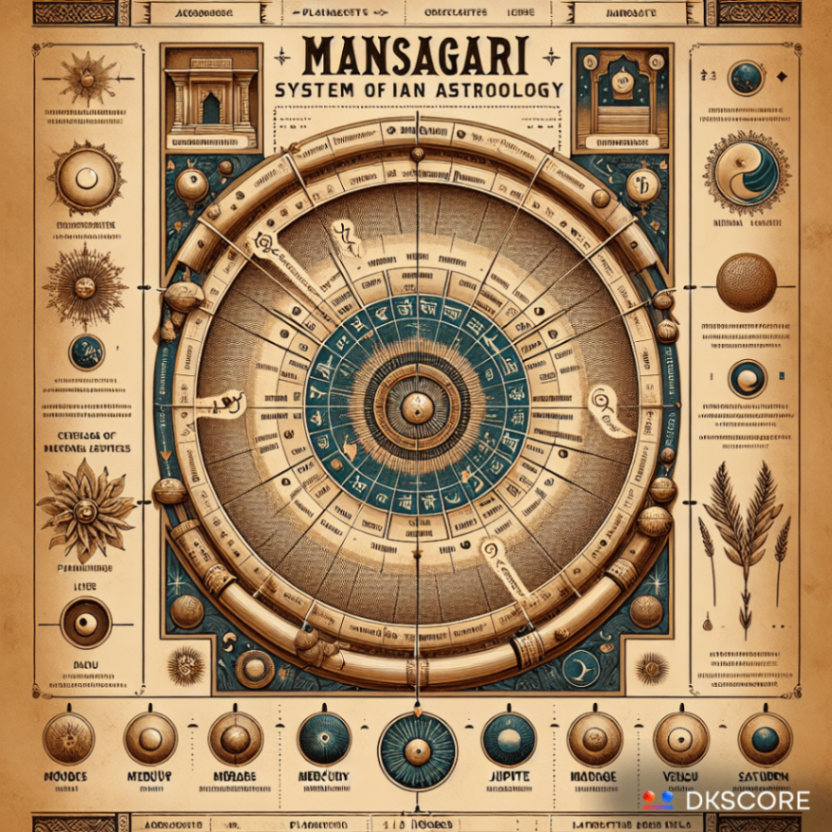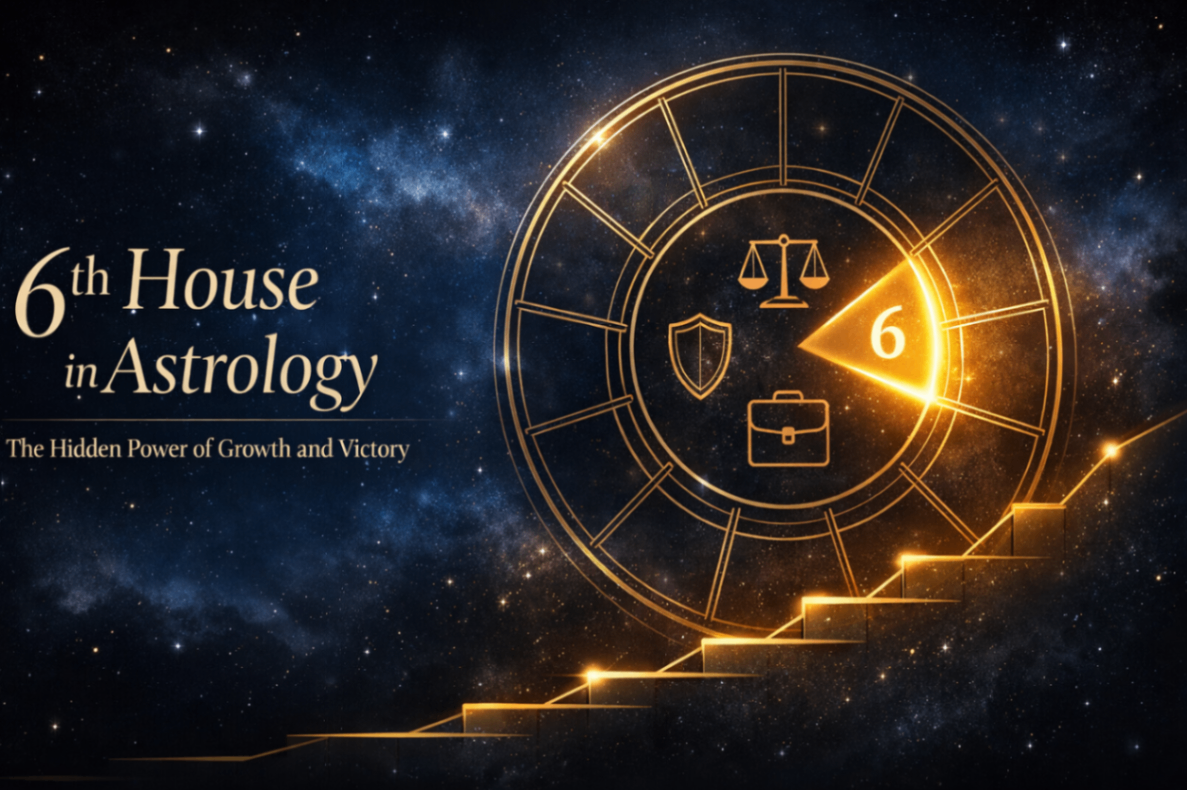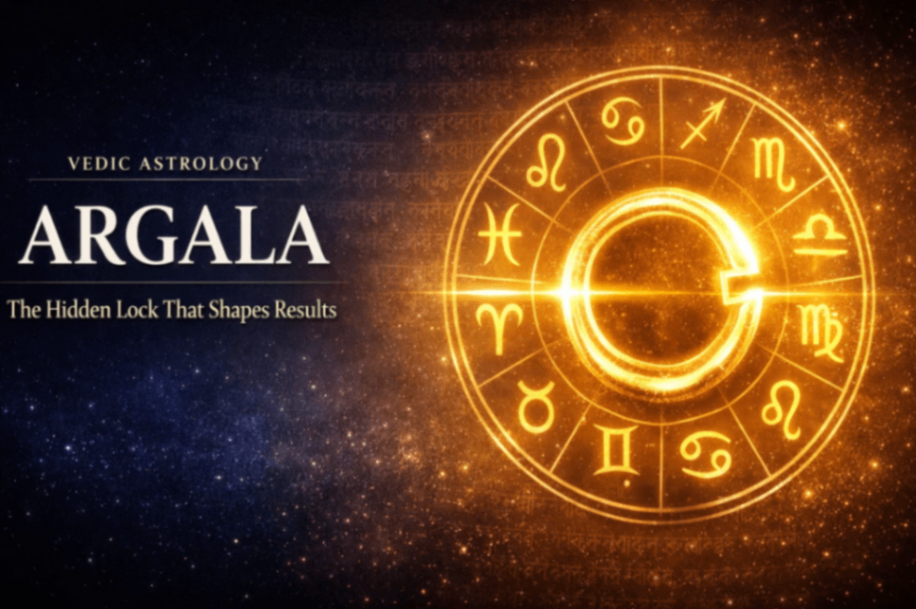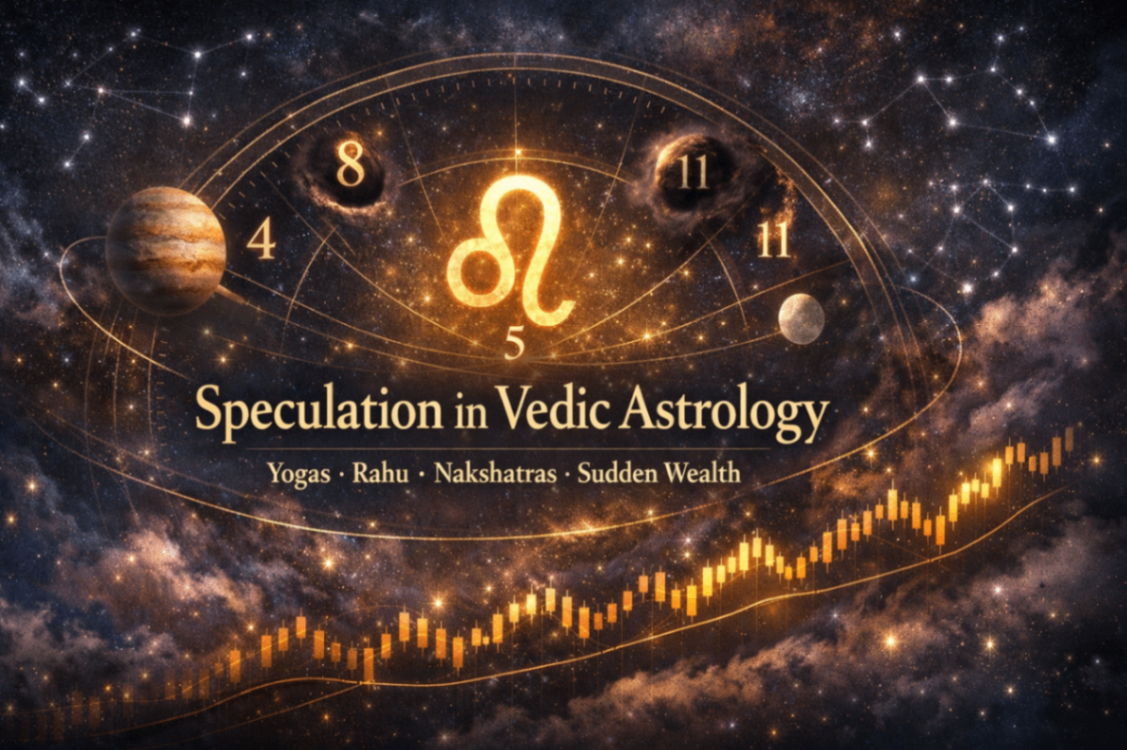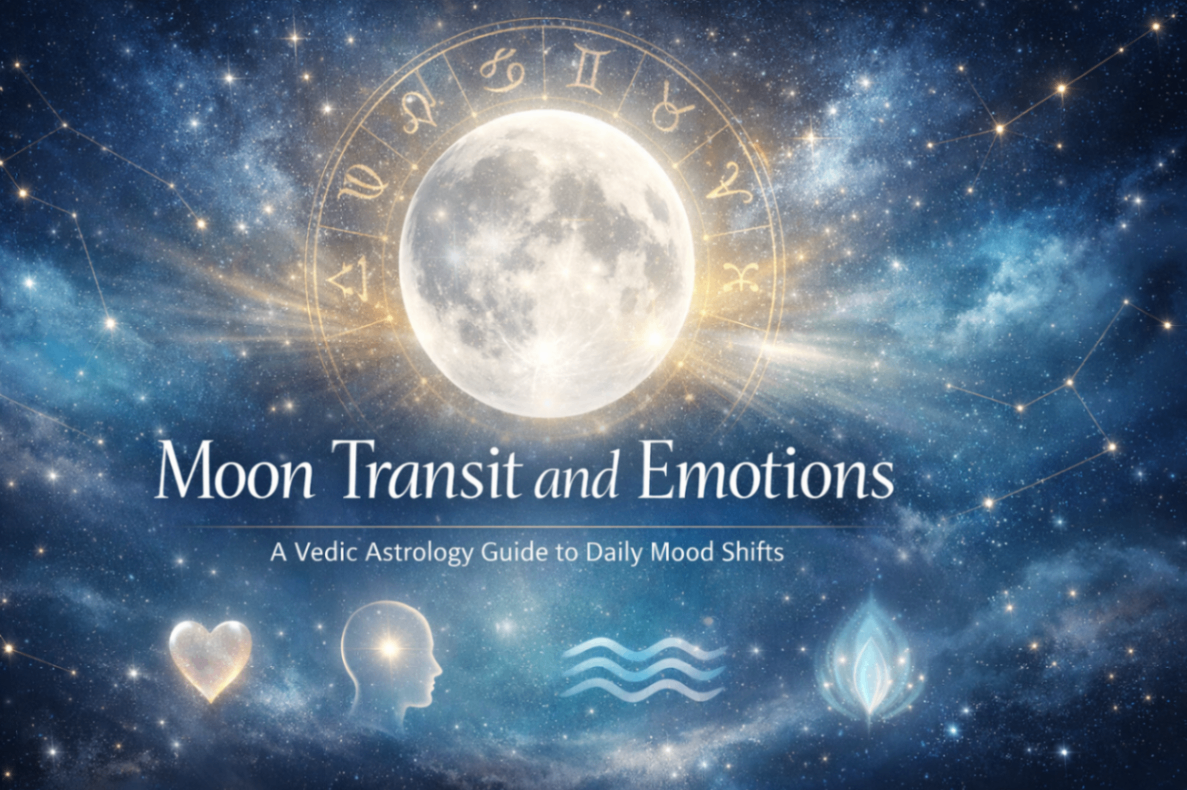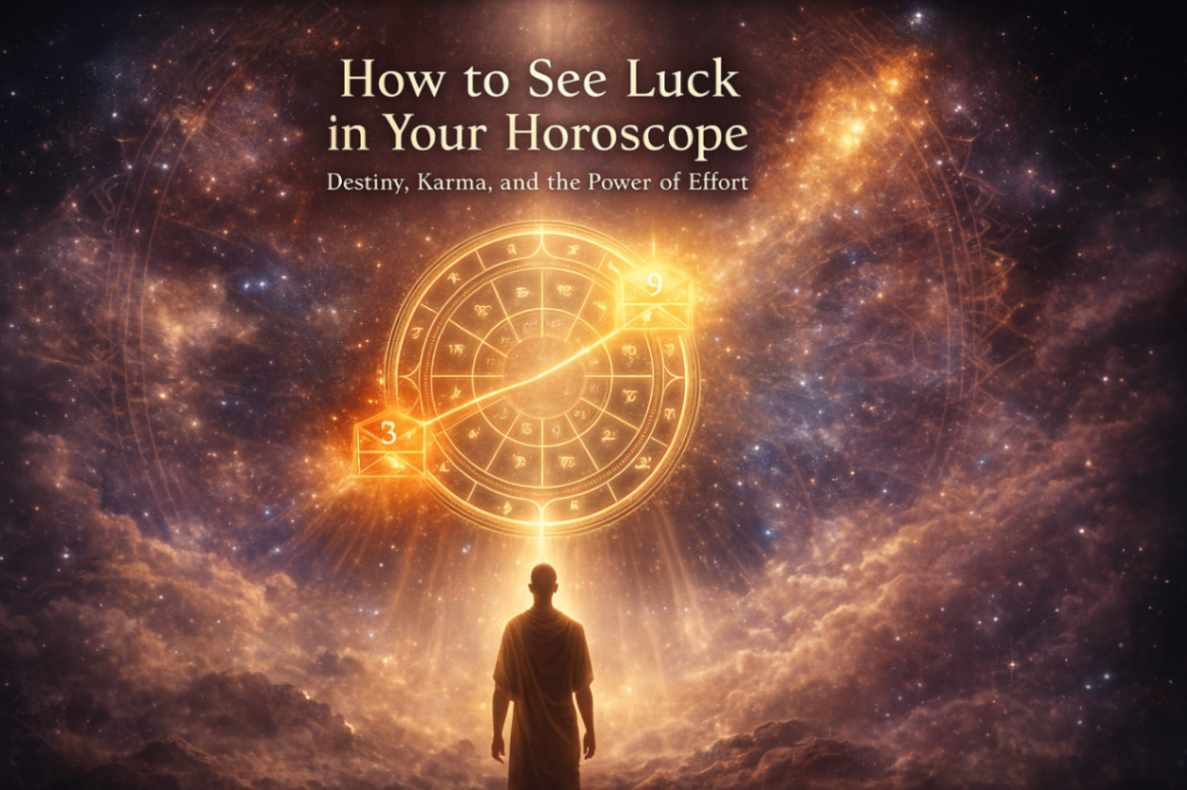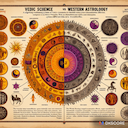Astrology has been a guiding force for humanity for centuries, helping people understand their personalities, life events, and karmic influences. Among the various systems, Western astrology and Vedic astrology stand out as two of the most influential and widely practiced forms. Though they share common elements, their fundamental principles and interpretative methods vary significantly. This article explores the difference between Vedic and Western astrology, their predictive strengths, and how they can complement each other.
Origins and Astronomical Basis
One of the most significant distinctions between Western astrology and Vedic astrology lies in their calculation methods.
Western astrology follows the tropical zodiac, which is based on the position of the Sun relative to the Earth’s seasons. The zodiac signs remain fixed, beginning with Aries at the spring equinox.
Vedic astrology, or Jyotish, uses the sidereal zodiac, which accounts for the Earths axial precession. This means that over time, the positions of the planets shift due to the Earth’s tilt, causing a nearly 24-degree difference between the two systems.
For instance, someone with their Sun in Aries in a Western horoscope might have their Sun in Pisces in their Vedic birth chart due to this difference. This shift significantly affects planetary positions and house placements, leading to variations in interpretation.
Interpretative Approach: Psychology vs. Predictive Precision
A fundamental difference between Vedic astrology and Western astrology is their focus.
Western astrology emphasizes psychological analysis, focusing on personal growth, emotions, and behavioral tendencies. Readings often describe how a person will experience life events rather than making concrete predictions.
On the other hand, Vedic astrology is event-oriented, focusing on life predictions, karma, and destiny. Jyotish readings commonly include precise forecasts about career, marriage, health, and finances. Unlike Western astrology, which leans toward personality traits and psychological tendencies, Vedic astrology prioritizes life events and karmic influences.
For example, a Vedic astrologer might predict the exact timing of career changes, financial gains, or relationship struggles using unique tools like Dasha periods (planetary cycles) and Bhukti periods (sub-periods). In contrast, a Western astrologer might explain how a career shift will make someone feel and influence their personal growth.
Techniques and Predictive Methods
While both systems analyze planets, houses, and aspects, their techniques vary significantly.
Western Astrologys Predictive Techniques
Transits – Tracks planetary movements to predict upcoming themes in life.
Progressions – A symbolic method of moving planets forward in time to reflect personal growth.
Solar Returns – A chart created for the Sun’s return to its natal position, forecasting themes for the coming year.
Vedic Astrologys Predictive Techniques
Dasha System – Planetary periods that govern life phases and major events.
Nakshatras – Lunar mansions that provide deeper personality insights.
Divisional Charts (Vargas) – Micro-charts that offer a refined view of different life areas, such as career (D10), marriage (D9), and finances (D2).
Vedic astrologys Dasha system offers a more structured timeline for life events, while Western astrology’s progressions and transits help understand emotional and psychological transitions.
Cultural and Social Influences on Astrology Readings
Astrology doesnt exist in isolation—it reflects the cultures in which it is practiced.
In Western astrology, the emphasis is on individualism, self-discovery, and personal evolution. A reading is more about understanding oneself and navigating life’s psychological complexities.
In Vedic astrology, the focus is on dharma (life purpose), karma, and duty within societal and familial structures. Life events, such as marriage and career, are considered part of a larger cosmic plan rather than solely personal choices.
For instance, in Western astrology, a difficult marriage aspect in a birth chart might indicate emotional challenges or growth opportunities. In Vedic astrology, the same aspect might be interpreted as a karmic consequence from past lives, affecting relationship outcomes with precise remedies.
Combining Western and Vedic Astrology for a Holistic View
Some astrologers, including James Braha, advocate for combining Vedic and Western astrology to get a complete picture of a persons life.
Western astrology excels at explaining who you are, focusing on personality, emotions, and behavior.
Vedic astrology is stronger at predicting what will happen, offering precise event-based insights.
For example, an individual may have a Western chart that suggests artistic tendencies but a Vedic chart that indicates an engineering career. This could mean that while they are professionally involved in engineering, their innate nature is artistic, influencing how they approach their work.
By integrating both systems, astrologers can offer richer insights—knowing both who a person is and what they are likely to experience.
Insights into Astrological Accuracy and Psychic Influence
Astrology often intersects with intuition and psychic abilities. In India, many traditional Vedic astrologers develop psychic intuition through years of meditation, mantras, and spiritual practices.
While Western astrologers may also develop intuitive skills, the long-standing practice of vegetarianism and yogic traditions in India may contribute to deeper sensitivity in Vedic astrology.
Moreover, James Brahas experience suggests that some Vedic astrologers provide accurate predictions that don’t always have a visible astrological basis, indicating a blend of astrological expertise and psychic perception.
Remedies in Vedic Astrology: Gemstones, Mantras, and Rituals
Unlike Western astrology, which primarily focuses on guidance and psychological advice, Vedic astrology provides remedies to mitigate planetary afflictions.
Common remedies include:
Gemstones – Wearing specific gemstones to strengthen weak planets.
Mantras – Chanting planetary mantras for 11,000 repetitions over 110 days to pacify negative influences.
Yagyas (Vedic rituals) – Conducting fire rituals to reduce the severity of difficult planetary periods.
These remedies are believed to help balance karma, offering spiritual support during challenging planetary phases.
Final Thoughts: Which Astrology System Is Better?
The difference between Vedic astrology and Western astrology lies in approach, methodology, and emphasis.
Western astrology is best for understanding psychology, emotions, and life experiences.
Vedic astrology is better for timing events, predicting destiny, and offering remedies for difficult periods.
Combining both offers a comprehensive view, covering both personality and fate.
As James Braha suggests, using both Vedic and Western astrology allows for a full-spectrum reading, offering insights into who a person is and what life events they will experience. Rather than choosing one over the other, integrating both systems provides a deeper, more holistic astrological understanding.





